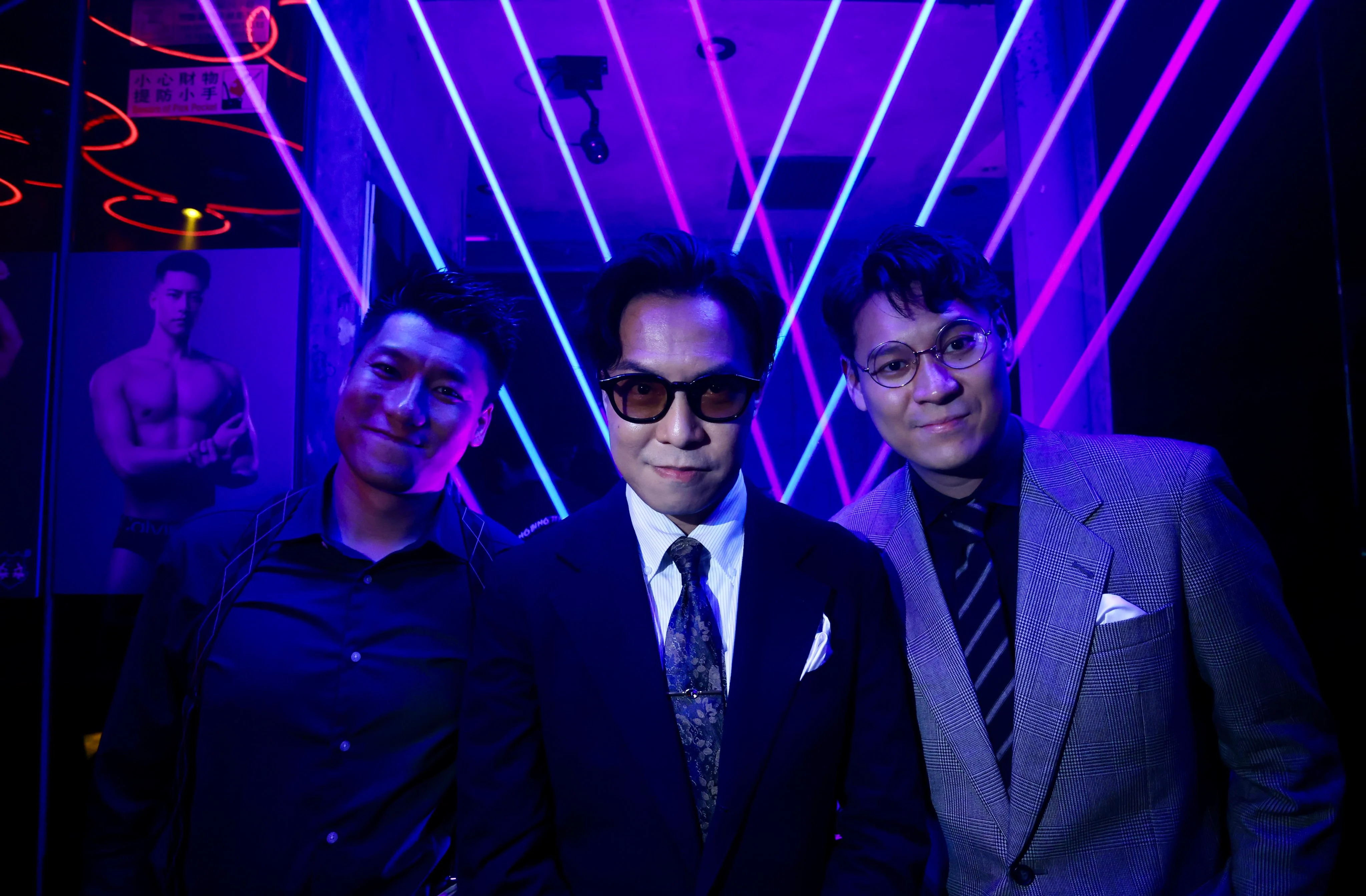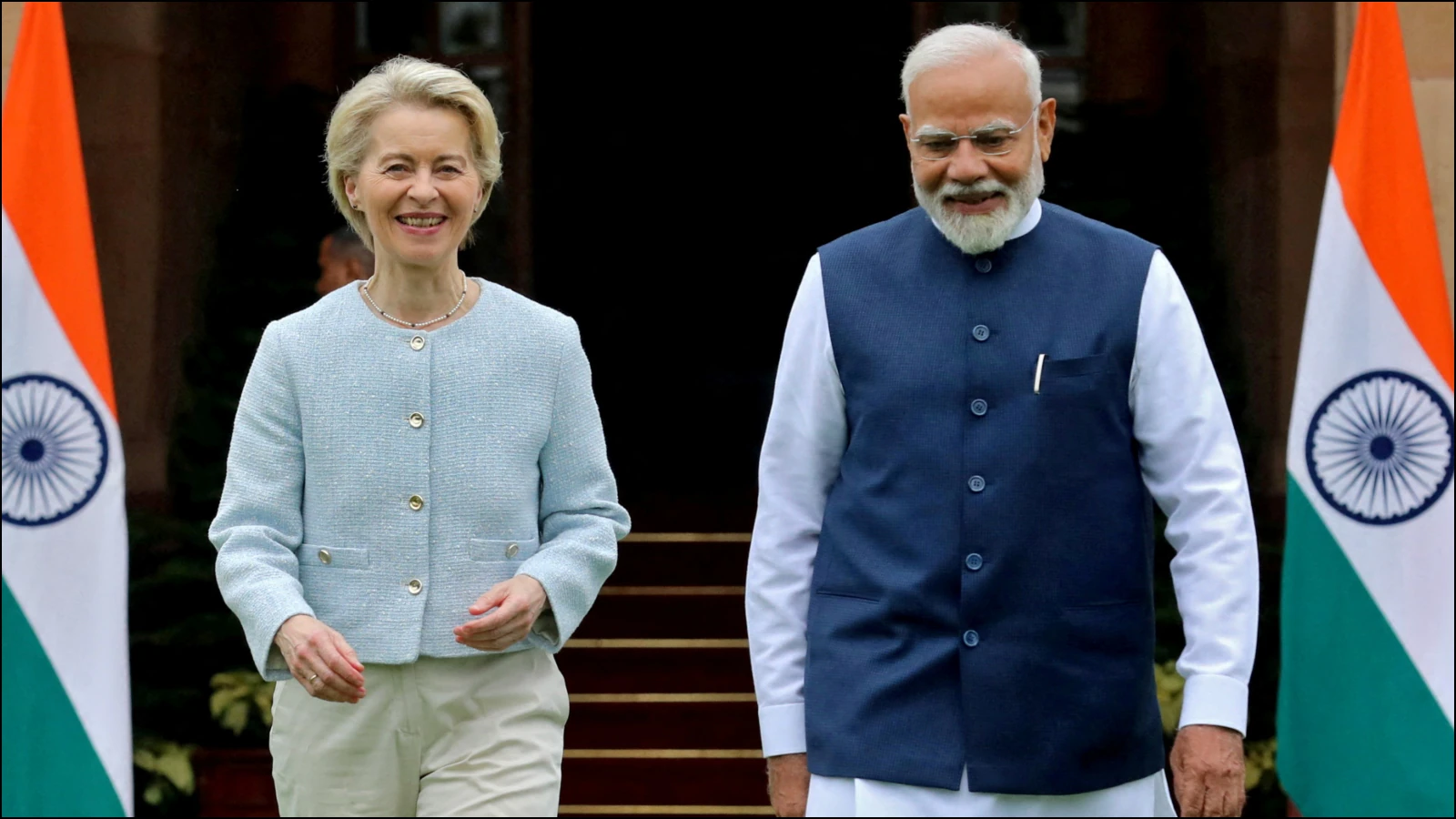By Lisa Cam
Copyright scmp

The three members of Beat Friday do not look like your typical DJs when they take to the decks.
Dressed in suits and ties, or even braces and gold-rimmed glasses, the group have curated their image to remind party-goers of the golden age of Cantopop.
From the 1980s to the 2000s, the music genre was one of the most unifying cultural forces in Asia, and Hong Kong was an entertainment powerhouse that dominated cinema and music in the region.
Fast forward to the present day, and Asia and the world are singing to a different tune: K-pop.
Where viewers once tuned in en masse to Hong Kong broadcaster TVB to hear music, today many consume content via streaming services, which have fragmented audiences.
However, three decades of music dominance do not just fade away, and Cantopop continues to have a place in Hongkongers’ hearts, young and old.
This is what friends INK, Ballshing and Zip Chow have discovered. Together as Beat Friday, they have been reigniting Hong Kong’s love of Cantopop one party at a time.
The often sold-out parties are held at a different venue each time, from smaller places such as Vibes at The Mira Hotel to the outdoor area of M+ museum in the city’s West Kowloon Cultural District, which can accommodate more than 1,000 people.
View this post on Instagram
A post shared by 節拍星期五 (@beat_friday)
If INK’s name seems familiar, it may be because he performed as a beatboxer during Cantopop star Leo Ku Kui-kei’s 2007 Magic Moment series of concerts, and also beatboxed on Ku’s 2008 hit, “Will Have The Same Day Every Year” . He has been producing music in Hong Kong ever since.
“I started Beat Friday in 2017 and would DJ at parties on Fridays, but then the pandemic hit,” INK says.
“By this time, I had already met Zip and Ballshing. We were so bored that we collaborated on a few things, such as a remix of [Hong Kong independent singer-songwriter] Serrini’s [song], and we did a medley of 1980s Cantopop with theatrical voice-overs.
“After we created these tracks, we needed an outlet for them, and Beat Friday, in its current form of Cantopop parties, was born.”
A unique element of Beat Friday’s sets is that the tunes are not overly remixed. Each Cantopop song’s best hook is played and then quickly followed by another, with the party-goers singing along and soon dancing to their favourite tracks.
“We want to reintroduce the best of Cantopop to our audience,” INK says. “I want to respect not only the original artist, composer and lyricist but also the producer. There is more than style to DJing.
“Even when we remix, we will probably increase the beat for people to dance, but we still want to retain the original feel of the song. We’re definitely a more open format style of DJing.”
As for Chow and Ballshing, their faces might not be as recognisable, but their voices may be, as both are DJs on Hong Kong radio stations RTHK and RTHK2.
Social media plays an important role in Beat Friday’s popularity. Chow, who is a co-creator and administrator of the group, floods social media with posts and stories to give people a taste of the vibes at Beat Friday parties.
“INK does the poster design for our posts,” Chow says, “and I am very active in documenting the vibe created by INK and Ballshing throughout the night; sometimes I post as many as 30 Instagram stories.
“It is important to people who haven’t been to our events to get a feel for them; some people are still liking our social media posts from six months ago,” he adds.
While the collective started their parties during the Covid-19 pandemic, 2025 was when things really took off, despite the gloomy outlook of Hong Kong’s economy.
“Our set at Boomerang [a nightclub in Hong Kong’s Central neighbourhood] really changed things, and we went from doing one gig per week to three or four, and it’s been like this for the entire year,” INK says.
“I found it curious when business owners would complain that the streets were dead because everyone was going to Shenzhen, but then we would have a full house at our events. I think people are still going out in Hong Kong; you just need to give them a reason to gather.”
The three friends each have slightly different theories as to why Cantopop events are so popular.
“Cantopop is iconic,” Chow says. “Leslie Cheung, Anita Mui and Alan Tam are all legends and so is their music; I think their attractiveness is evergreen.”
Ballshing feels that nostalgia plays a huge part. “Cantopop from the 1980s to 2000s represents the height of Hong Kong culture,” he says. “The music will take older people back to that time, while younger people would fantasise about that era of Hong Kong. That’s the power of the appeal.”
INK offers a more technical explanation: “A lot of Cantopop songs, especially in the 1980s, were covers of music from overseas, and these songs already have universal appeal.
“Then there was a lot of sampling done in the 1990s, so the beats and melodies are also very popular and familiar to many people.”
Sampling is when songwriters or producers take a portion of a pre-existing sound recording, such as a drum beat, melody, vocal phrase or even dialogue, and incorporate it into a new composition.
While many in Hong Kong’s entertainment industry lament Cantopop’s loss of popularity compared to 20 years ago, INK feels that it actually gives Beat Friday more creative space.
“We never had it good,” he says.
“At the beginning, we were happy if 60 people showed up to our events. Some artists would think that they’ll need a certain amount of money before they can start a project, but we never had that kind of investment, so in turn, we can concentrate on our creativity.
“Who knows? If and when the Cantopop parties do not work out, maybe we’ll make a movie next.”



